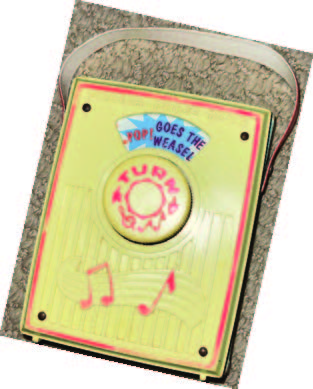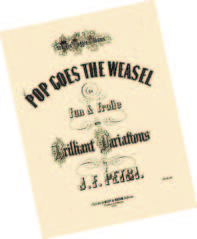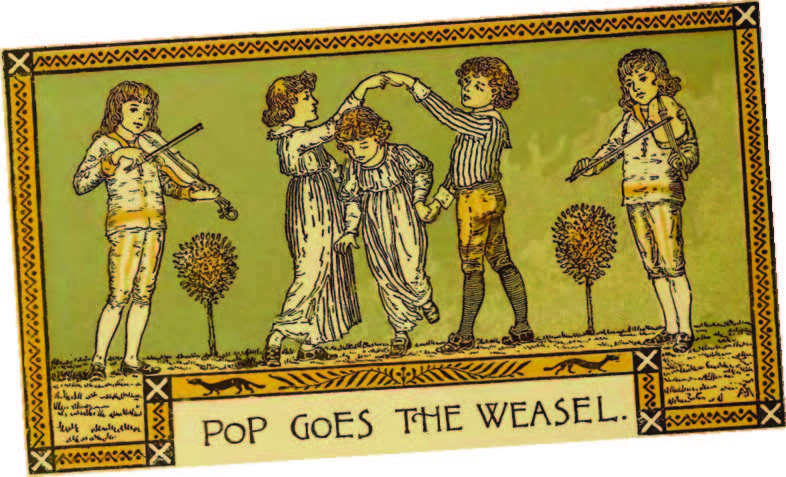
Images courtesy of Upper Case Editorial
The Ultimate Guide to “Pop Goes the Weasel.”
By Mark Stewart
Images courtesy of Upper Case Editorial
The Charleston. The Jitterbug. The Twist. The Hustle. The Electric Slide. Most of us are familiar with the popular dance crazes of the last century. But did you know that, 170 years ago, a tune we now associate with toddlers cranking Fisher-Price toys was the hottest party dance on both sides of the Atlantic? “Pop Goes the Weasel” was, in many respects—both literally and figuratively—the beginning of Pop Culture. The tune was performed by proper orchestras, by bands in dingy music halls, by street musicians, at community dances and at elegant soirées, including those hosted by British nobles and Queen Victoria herself.
What all these venues had in common was that, when you heard the catchy tune, you could barely contain your impulse to leap to your feet and perform the intricately choreographed dance.
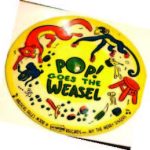
Images courtesy of Upper Case Editorial
Inspired by an old English folk melody, “Pop Goes the Weasel” had no set lyrics at first, but soon people began supplying their own, including some bawdy ones. Mostly the words were nonsensical, the common theme involving some creature (or person) chasing a weasel—around a cobbler’s bench, a chicken coop and ultimately 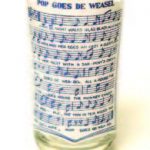 a mulberry bush, which was borrowed from the similar-sounding American version of the nursery rhyme Here We Go ’Round the Mulberry Bush.
a mulberry bush, which was borrowed from the similar-sounding American version of the nursery rhyme Here We Go ’Round the Mulberry Bush.
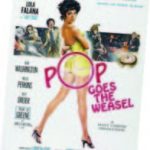
Images courtesy of Upper Case Editorial
Okay, so let’s get into it. What is the monkey’s problem? And why on earth is a weasel involved? The answer to the first question appears to be that monkeys were, are and always will be inherently chaotic and funny to humans of all ages. As for the weasel, it may not be an animal at all, but instead a spinner’s weasel, a device that measures out lengths of yarn produced by an old-school spinning wheel. Its internal gear structure was designed to make a pop each time a skein (80 yards) was completed. Imagine the mayhem an untethered simian could cause with one of those whirling around!
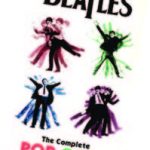
Images courtesy of Upper Case Editorial
Another origin story for the weasel stems from the Cockney term “weasel and stoat,” which rhymes with (and is thus short for) “coat.” Long ago, “popping the weasel” meant having to pawn your Sunday coat; the monkey in the lyrics, then, would have been short for money troubles (think “monkey on your back”). Thus to certain Londoners of the My Fair Lady era, being “chased by a monkey” meant scuffling for cash or dodging creditors.
Not surprisingly, “Pop Goes the Weasel” has inspired modern “covers” by everyone from Fats Waller to Bill Haley & The Comets to the 80s hip-hop group 3rd Bass. In 1963, the tune was used as the intro music for the short-lived Beatles BBC radio show Pop Go The Beatles. And, of course, it is the go-to accompaniment to Musical Chairs. Finally, “Pop Goes the Weasel” appears to have become the default song for Jack-in-the-box toys by the 1930s—delighting most young children while causing a few to burst into tears (and no doubt inflicting some kind of permanent psychological damage).

